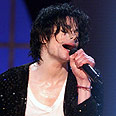
The world’s clown
We loved Michael Jackson because he breached the limits of imagination
NEW YORK – The world has been overcome by a sense of gloom over the weekend upon the death of Michael Jackson, a pop legend and one of the most successful artists in history. Tears flowed from millions of eyes, the dust was shaken off old records, and Jackson went back to being the man he was during the 1980s – a great singer with a human face; that is, a face that has yet to experience serous abuse by plastic surgeons.
The displays of mourning over the death of the man who defined the generation he lived through – even if in an extreme manner – is commensurate with Jackson’s legacy. As aside from the musical legacy, Jackson left behind him the void of being the world’s clown, tasked with entertaining the masses at the town square. Just like every episode in his life was overridden with clichés, Jackson the clown is the same overused sad clown cliché.
We must admit that we loved Jackson not only because of Thriller, but also because of the fact that he stretched his glory beyond the limits of imagination, and did it without all the obstacles that hinder regular people – economic worries, fears about what others would say, and the image he saw in the mirror even after undergoing a long serious of increasingly ridiculous operations.
Jackson was much beyond a singer; he was the world’s most successful entertainer, one who is not always wise enough to realize the joke’s at his expense.
The scandals came out of his home at a greater rate than the hits that came out of his studio. We liked telling jokes about him; he was a quick and convenient target, the one that delivers the goods. Did we truly disparaged him, or were we horrified by the mirror he placed before us? Indeed, every element in his life, ranging from success to death, was extreme and at times surrealistic, yet the interest we showed in him also went beyond the natural voyeurism into the lives of celebrities.
Jackson’s life sadder than his death
The plastic terrorism Jackson put his body through drew massive contempt, yet to a large extent represents the human obsession with a youthful appearance. His Neverland ranch with its zoo, amusement park, and hoards of servants provoked our sense of jealousy and desire for an ostentatious and materialistic lifestyle.
The whitening process he forced upon himself is identical to the whitening of teeth undertaken by millions of people – in both cases this stems from the immense need for acceptance and supplementation via an external act.
Michael Jackson’s life was sadder than his death. Below the layers of whitened skin hid not only a man ashamed of his descent and skin color, but mostly a man who throughout his life pursued love. The series of achievements, historic records, millions of fans and all the money in the world were unable to fill the huge void in his soul.
This void’s scope and content changed from one place to another. Israelis will remember Jackson’s merry days in Bahrain and the times he rubbed shoulders with Persian Gulf princes. In the dollar-dominated US, Jackson’s cash reserves are being counted, his debts and profits are being tabulated, and people wonder whether a day will come where global tourists will have to show a check mark next to the Neverland tourist site.
Bidding Michael Jackson farewell is not only about a farewell to the entertainment aspect of our lives, but mostly the forced need to bid our youth farewell. The need to say goodbye to the first video clips on television, the first foreign words that were rolling off our tongues so naturally, and to the first American brand name that lifted our lives above the Mideastern boorishness and made us into citizens of the world too.
This is a farewell to the innocence of youth, to school parties, and to MTV. This is also a farewell to a clown whose life constituted a macabre satire on human life.










